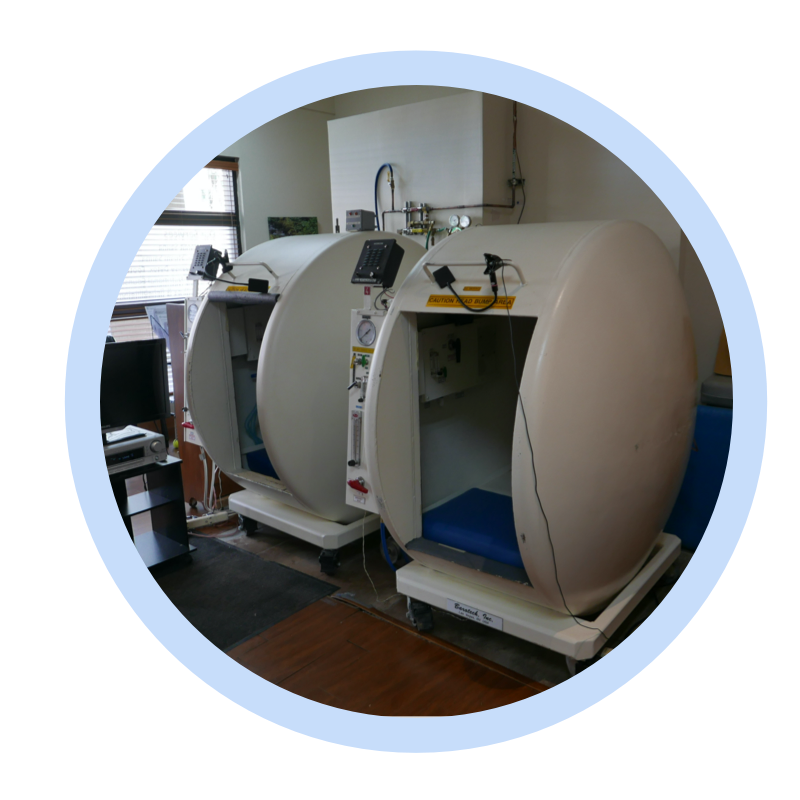Why Hyperbaric Oxygen Therapy?
Every health concern, illness or disease involves inflammation that, if chronic, leads to tissue damage and low oxygen levels (hypoxia). Hyperbaric oxygen significantly lowers inflammation and the associated pain as well as significantly promotes healing of the damaged tissue. Hyperbaric oxygen therapy also increases the oxygen levels to every cell in the body thus supporting the function of every system in the body, including the nervous, digestive, immune, cardiovascular, neurological, and musculoskeletal systems. Hyperbaric oxygen therapy can be a stand-alone therapy or in conjunction with other medical or alternative therapies.

Benefits of Hyperbaric Oxygen Therapy (HBOT)
Increasing the tissue oxygen levels produces several important long term therapeutic benefits, including:
Responsive Conditions:
Hyperbaric Oxygen Therapy has been demonstrated to be beneficial for almost 200 diverse conditions, ranging from stroke recovery, circulatory disorders, heart disease, infections and an adjunct in the treatment of aids and cancer. All conditions HBOT is used for have one thing in common: the affected areas are not getting enough life-sustaining oxygen. Explore the menu below to see some of the conditions that hyperbaric oxygen therapy has been shown to help:
- Crush injuries
- Compartment syndrome
- Soft tissue musculoskeletal injuries
- Closed and open head injury
- Fracture repair (all stages) delayed and non-union
- Bone grafts
- Aid to prosthesis rehabilitative care
- Acute and chronic spinal instability
- Sacroiliac syndrome
- Osteoporosis
- Disc protrusion (single, multi-level)
- Post-surgical instability
- Degenerative joint disease (single, multi-level)
- Inflammatory arthritis
- Spinal cord neuropathy due to crush and neurovascular degeneration
- Peripheral nerve injury and neuropathies (crush, demylination)
- Closed head impact injury (brain damage)
- Cerebral edema
- Migraine
- Brain abscess
- Cerebrovascular stroke (acute and chronic stages)
- Multiple sclerosis
- Multi infarct dementia
- Cerebral palsy, epilepsy due to hypoxia
- Aid to cardiac surgery and rehabilitation
- Coronary heart disease (angina pectoris, myocardial ischemia)
- Heart insufficiency (post surgical)
-
Heart contractile dysfunction
- Non healing, delayed wounds
- Aid to survival skin flaps with marginal circulation
- Aid to re-implantation surgery
- Aid to burns treatment
- Delayed wounds, recurrent ulcers, infection
- Acute and chronic arterial insufficiency
- Sickle cell crisis
- Acute and chronic blood loss anemia
- Enhancement of radio-sensitivity of malignant tumors
- Central retinal artery occlusion
- Sudden deafness
- Labyrinthitis
- Meniere’s disease
- Gastric and duodenal ulcers
- Necrotising enterocolitis
- Paralytic ileus
- Pneumotoides cystoides intestinalis
- Hepatitis
- All stages of diabetes
- Lung abscess
